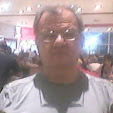After more than 50 years of disruption, the United States and Cuba initiate the resumption of diplomatic relations, both countries reported on Wednesday (17).
"We intend to create a new chapter in relations between the countries," said the US President, Barack Obama, by opening his speech.
He pointed out that ideological and economic barriers between the two countries, since 1961, wouldn't it make more sense, in reference to the Socialist regime of the island. Obama cited that the country "must worry about real threats, such as extremist groups Al Qaeda and Islamic State".
"These 50 years have shown that the isolation hasn't worked, it's time for another approach," said Obama. In his speech, Obama used phrases in Spanish. "The Cubans have a saying: ' No you're easy ', or ' not easy ', but today the United States want to be a partner in making ordinary Cubans ' lives a little easier, freer, more prosperous," he said. "We are all Americans", completed in Spanish.
"Good afternoon. Today, the United States of America are changing their relationship with the people of Cuba.
In the most significant shift in our policy in more than 50 years, we end up with an outdated approach that, for decades, has failed to boost our interests, and instead we begin to normalize relations between our two countries. Through these changes, we intend to create more opportunities for the American and Cuban peoples, and start a new chapter between the Nations of the Americas.
There's a complicated history between the United States and Cuba. I was born in 1961 – a little over two years after Fidel Castro took power in Cuba, and a few months after the Bay of Pigs invasion, which tried to overthrow his regime. Over the next few decades, the relationship between our countries has developed on the background of the cold war and America's firm opposition to communism. We are separated by little more than 144 miles. But, year after year, ideological and economic barriers weighed between our two countries.
Meanwhile, the community of Cuban exiles in the United States has made tremendous contributions to our country – in politics and in business, culture and sports. As the immigrants before, the Cubans helped remake America, even if they sense a painful yearning for the land and the families they left behind. It called the United States and Cuba in a unique relationship, at the same time familiar and enemy.
Proudly, the United States supported democracy and human rights in Cuba throughout these five decades. We did it mainly through policies aimed at isolating the island, preventing the most basic travel and trade that Americans can enjoy anywhere else. And, although this policy was rooted in the best of intentions, no other nation joins us in the imposition of such sanctions, and so had little effect beyond providing the Cuban Government a justification for the restrictions on its people. Today, Cuba is still ruled by Castro and the Communist Party, which came to power half a century ago.
Neither the American people nor Cubans are well served by a rigid policy that is rooted in events that occurred before most of us were born. Consider that, for more than 35 years, we have had relations with China – a much bigger country also ruled by a Communist Party. Nearly two decades ago, we restored relations with Viet Nam, where they fought a war that claimed more American lives than any confrontation of the cold war.
> Read more: shared values
That's why – when assuming the Presidency – promised to re-examine our Cuba policy. As a starting point, which lifted the restrictions for Cuban-Americans to travel and send remittances to their families in Cuba. These changes, once controversial, now seem obvious. Cuban-Americans have been reunited with their families and are the best possible ambassadors for our values. And through these exchanges, a new generation of Cuban-Americans have questioned increasingly an approach that does more to keep Cuba closed in front of an interconnected world.
Although I have been prepared to take additional measures for some time, was a major obstacle in our way – the illegal prison in Cuba, a u.s. citizen and subcontracted by Usaid (Agency for development of the United States) Alan Gross for five years. Over many months, my Administration held talks with the Cuban Government about the case of Alan, and other aspects of our relationship. His Holiness Pope Francis issued a personal appeal to me, and to the President of Cuba, Raul Castro, urging us to settle the case of Alan, and to address Cuba's interest in the release of three Cuban agents who were arrested in the United States for more than 15 years.
Today, Alan came home – met his family finally. Alan was libert













Nenhum comentário:
Postar um comentário
MUITO OBRIGADO ! SUAS CRITICAS, NOS AJUDAM A MELHORAR BLOG, SEUS COMENTÁRIOS SOBRE O ASSUNTO É IMPORTANTE PARA NÓS PARTICIPEM.